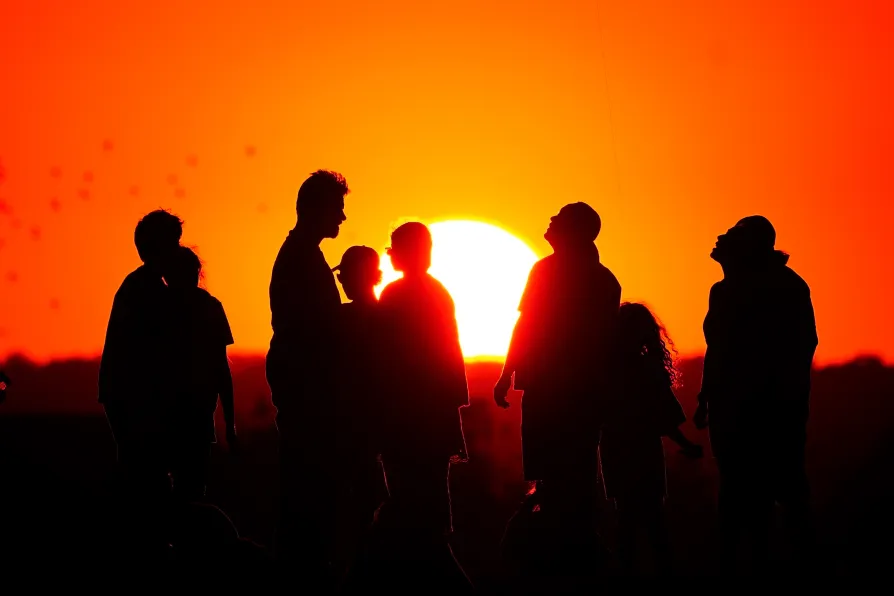
 A crowd of people watching the setting sun from a hill in Ealing, west London
A crowd of people watching the setting sun from a hill in Ealing, west London
WORKERS face a growing “crisis” of climate-related risks to their health, a safety organisation warned today.
Those in agriculture, the emergency services, constructions and commercial fishing are in particular danger from extreme temperatures, poor air quality, vector-borne illnesses (those carried by living organisms), infectious diseases and storm surges, said the Institution of Occupational Safety and Health (IOSH).
The government should take climate-related risks into account in its legislation regulating employment and occupational health and safety, said IOSH head of policy and public affairs Ruth Wilkinson.
“This is a growing crisis that will only get worse if collective action isn’t taken,” she said.
“We are calling on governments to factor climate-related risks into their labour and occupational health and safety laws.
“We want to see more investment, including in research, to deepen understanding of the risks to workers and to facilitate adaptations and mitigations to the work-related impacts of climate change.
“Businesses need to ensure they include these risks in their internal processes, ensuring they assess the climate-related risks and that they take action to mitigate the risks in a proportionate manner. Controls in place should include training and awareness for all workers.”
TUC General Secretary Paul Nowak said: “With our climate rapidly changing, we urgently need to upgrade our buildings, workplaces and infrastructure, so that they remain functional during heatwaves.
“And it’s why we’re calling on the government to strengthen legal protections with a maximum working temperature.”
The TUC has called for stronger protections to ensure that employers comply with their legal duty to keep workplace temperatures at a comfortable level and provide clean, fresh air.
It says employers should be required to take action to reduce indoor temperatures if they rise above 24°C and workers feel uncomfortable.
Work should also stop above a maximum temperature of 30°C to 27°C for those in strenuous jobs, the union federation says.
A Health and Safety Executive spokesperson said: “There is a legal obligation for all employers to make a suitable assessment of the risks employees may face. Action should be taken where necessary.
“This includes the risks to workers from extreme heat which must be properly assessed.”

When it comes to extreme weather events, from wildfires to flash floods, it’s firefighters who are on the front line of defence, but services have been cut to the bone, and government is not taking seriously its responsibility for the environment, says STEVE WRIGHT













